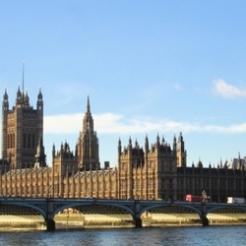The Public Administration and Constitutional Affairs Committee will meet on Tuesday to gather evidence on the fundraising methods used at charity call centres.
PACAC launched an inquiry into the regulation of fundraising in July after a summer of controversy. It has also launched a separate inquiry into government funding of defunct charity Kids Company, which heard evidence yesterday from Camila Batmanghelidjh, the charity's chief executive.
Tuesday’s meeting will hear evidence from Information Commissioner Christopher Graham and head of enforcement for the Information Commissioner’s Office, Steve Eckersley.
Chairs of the charities RSPCA, NSPCC, Oxfam and Save the Children will also give evidence.
PACAC's first evidence session last month heard calls from chief executives of some of the UK’s largest charities who called for stronger sanctions for rule-breakers.
Controversy over telephone fundraising methods last summer led to calls for greater regulation.
In July, Rob Wilson, the minister for civil society, tasked Sir Stuart Etherington, chief executive of NCVO, with reviewing fundraising self-regulation. But Etherington's call for a new Fundraising Preference Service was met with criticism from some areas of the charity sector.
Ian MacQuillin, director of fundraising think tank Rogare, said in a blog the recommendation was neither “consistent or fair”.
“If members of the public can opt out of one type of marketing in its entirety then why should other sectors be allowed to contact people with impunity?” he asked.
But the proposal was welcomed by some with former policy manager for the ICO, Tim Turner saying it was not tough enough. He said it was “at best, a massively ill-informed gimmick and, at worst, a Trojan Horse for one last delirious orgy of spam”.
The PACAC inquiry is focused on four key areas - call centre practices; legislative changes; charity governance over fundraising practices; and the relationship between charity values and actions.
The toll already taken on telephone fundraising agencies
After the death of Olive Cooke in May, both the Daily Mail and the Sun sent undercover reporters into a number of telephone fundraising agencies including GoGen, Listen and Pell & Bales.
In early July, the Mail accused GoGen of using a loophole in the Telephone Preference Service to target registered phone numbers and vulnerable people with fundraising asks. Despite refuting the allegations and contemplating legal action, GoGen closed on 23 July, with the loss of 485 jobs.
Both Listen and Pell & Bales were also targeted by tabloid articles, making similar accusations as the ones made against GoGen. Both agencies are still in operation. However, according to the latest set of accounts from Pell & Bales, the organisation’s income has fallen by more than 30 per cent in the last financial year.
The increased media pressure saw a number of the UK’s largest fundraising charities suspend their contracts with telephone fundraising agencies. This resulted in the closure of Dunfermline based agency R Fundraising on 28 July, with the loss of almost 100 jobs.
Before the publication of the Etherington Review into self-regulation, the Institute of Fundraising announced a number of changes to its Code of Fundraising Practice which banned the selling of donor data and made it compulsory for all fundraising agency calls to be made from “an identifiable number”.









